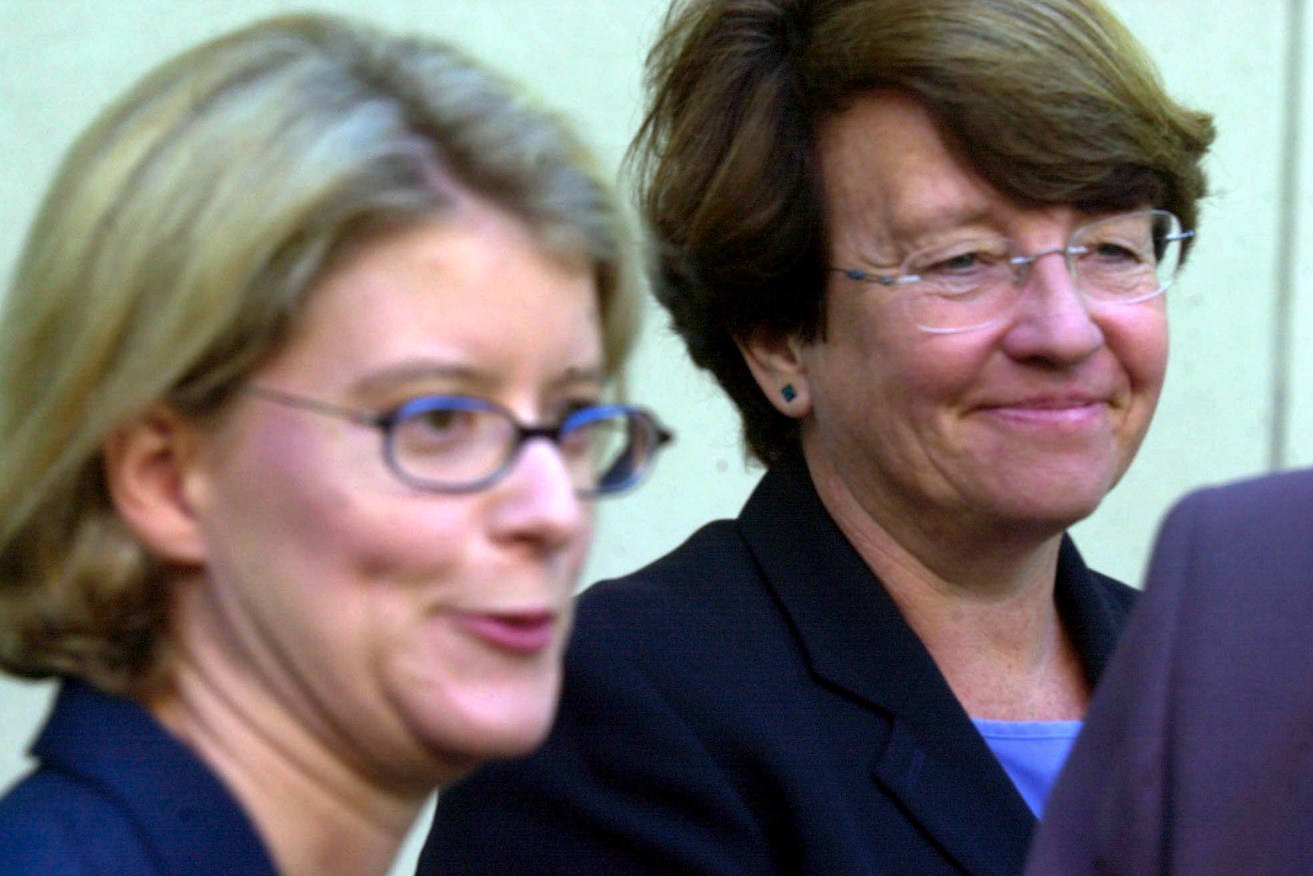Raise GST but lock in compo: Meg Lees
The woman who reluctantly brokered the deal that saw Australia’s GST introduced says she’s open to the tax being increased as long as compensation provisions are “locked in”.

"It was plain nonsense": then-Democrats leader Meg Lees flanked by Natasha Stott Despoja in 2001.
Former South Australian senator Meg Lees, who led the now-defunct Australian Democrats when the Howard Government introduced the consumption tax in 1999, told InDaily the reform was “essential”, and she has no regrets about facilitating it, despite her key role leading directly to her political demise.
“Absolutely not,” she insists.
“We wouldn’t have the social services, health and education we’ve got without it.”
And she delivered a backhander to her one-time deputy Natasha Stott-Despoja, who overthrew her as leader after railing against the GST deal.
“Within my own party there was a person who spent her time telling people we were wrong and she was right, and that this was the end of the world … but it was plain nonsense,” said Lees.
Stott Despoja declined to respond, but said: “My views on the policy and process of the GST negotiations more than 15 years ago are on record.”
Lees later quit the party and formed the Australian Progressive Alliance, before losing her seat at the 2004 election.
…we should be encouraging people to eat fresh food, and not hamburgers
She said yesterday’s Fairfax Ipsos poll, which suggested widespread support for increasing the GST with appropriate compensation, was not surprising given Australians had now seen the tax in implementation.
“I think Australians are an intelligent lot … they’ve actually experienced something and they can see it’s not going to be harmful, as long as people are compensated,” she said.
“They’ve seen a lot of rubbish bandied around last time – it was literally the end of the world as we know it!”
However, she was adamant that any compensation measures must be “locked in”, saying the Abbott Government’s controversial 2014 budget sought to remove many of the schemes introduced as a result of the 1999 GST agreement.
The removal of Family Tax Benefit Part B from single parents was one such measure, with the family payments system restructured in the wake of the GST.
“It was a Liberal Government who put it in and a Liberal Government who took a lot of it out,” Lees argued.
“We put in a package that would make single parents substantially better off … $40 a week is not much to you and me probably, but in those days it would make a big difference (to single parent families).
“So you have to be doubly careful … like we locked in the rate (at 10 per cent), you have to lock in that compensation in a way that guards against people starting to take it away.”
Nonetheless, Lees “absolutely” defended the tax changes, arguing Australia was “racking up debt” and “countries have to have a system that works”.
She also suggested the Democrats much-debated exemptions – particularly on fresh food – to the broad-based 10 per cent levy were as much about social engineering as reducing a fiscal impost on the poor.
“People on lower incomes don’t eat Wagyu beef, but they should be encouraged to eat as healthy as possible,” she said.
“A tax shouldn’t just be about money, but about doing what’s in their best interests … we should be encouraging people to eat fresh food, and not hamburgers.”
Despite ongoing social equity arguments against the GST, with the Weatherill Government repeatedly calling it a “regressive tax”, Lees insists the respective spending patterns of different socio-economic groups meant the tax is “actually fair”.
Her only regret is that “we never got the message across that people would be better off” under the changes once the compensation measures flowed through.
“We did a lot of good stuff when we were there,” she reflected.
However, she’s unconvinced the current debate will yield the much-anticipated increase: “The states all have to agree and right now I can’t see that happening.”




